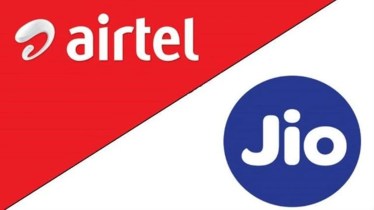Bharti Airtel and Reliance Jio are set to further scale back their capital expenditure (capex) intensity as they near the completion of their respective 5G rollouts. Meanwhile, Vodafone Idea is increasing its capex deployment as it prepares for its commercial 5G launch.
The next major phase of capex investment for Jio and Airtel will likely hinge on network utilisation levels as consumer adoption of 5G gains traction, analysts noted.
“We estimate Bharti’s India mobile capex intensity (capex-to-sales ratio) to drop to approximately 18% in FY25 (estimated) and further to 14% in FY27E, down from a peak of 30% in FY24. For Jio, which had a higher capex intensity of about 50% in FY24, this is expected to decline to 16% in FY25E and further to 12% in FY27E,” analysts at Axis Capital stated.
Airtel’s projected capex for FY25 is around Rs 28,500 crore, a reduction from Rs 33,400 crore in FY24. Jio’s capex is also expected to decrease significantly to Rs 29,500 crore in FY25, down from Rs 48,900 crore in the previous fiscal year.
Jio’s higher capex intensity was driven by its standalone (SA) 5G network architecture, where the entire network is built on 5G technology. In contrast, Airtel initially deployed a non-standalone (NSA) 5G network that relied on its existing 4G core. However, Airtel has now begun transitioning to a standalone 5G network. Experts estimate that this transition will take three to four years, as more 4G traffic migrates to 5G.
The slowdown in the deployment of 5G base transceiver stations (BTS) further indicates a decline in 5G capex. “The rollout of 5G BTS has dropped to just 8,000–9,000 per quarter, signaling a marked reduction in capex outlay despite 5G BTS accounting for only 15.7% of total BTS,” analysts at ICICI Securities observed. At the peak of 5G rollout, telecom companies were deploying nearly four times this number.
Despite this, analysts pointed out that 5G adoption among consumers has been healthy. Both Airtel and Jio introduced revised tariffs in July 2024, incorporating 5G monetisation. Jio’s entry-level 5G plan is priced at Rs 399 for 28 days with 2.5GB of daily data, while Airtel offers a similar plan at Rs 379. However, users eligible for 5G access currently do not face data caps.
According to data from the ministry of communications, as of February, there are 250 million 5G subscribers — about 22% of the country’s total wireless user base. Given that Airtel and Jio were the sole providers of 5G until recently (Vodafone Idea launched its 5G services in Mumbai just last week), their combined 5G penetration stood at approximately 35% of their total subscriber base by December 2024.
This strong adoption trend suggests sustained demand for 5G, even after the price hikes introduced in mid-2024.
